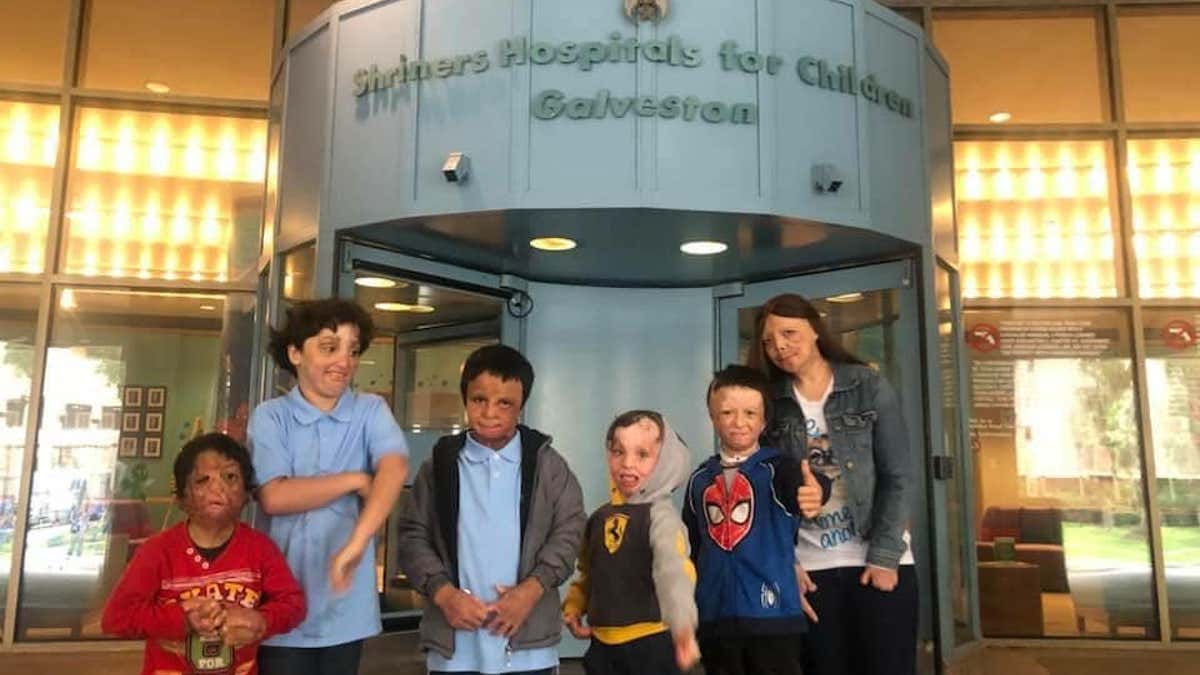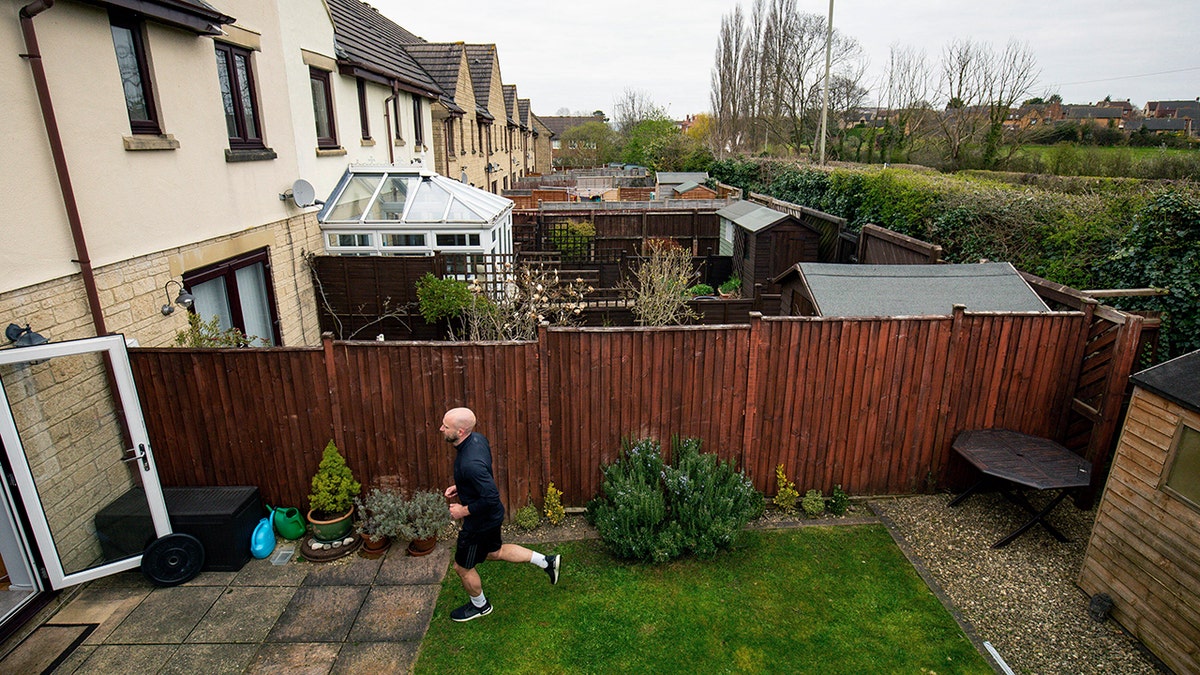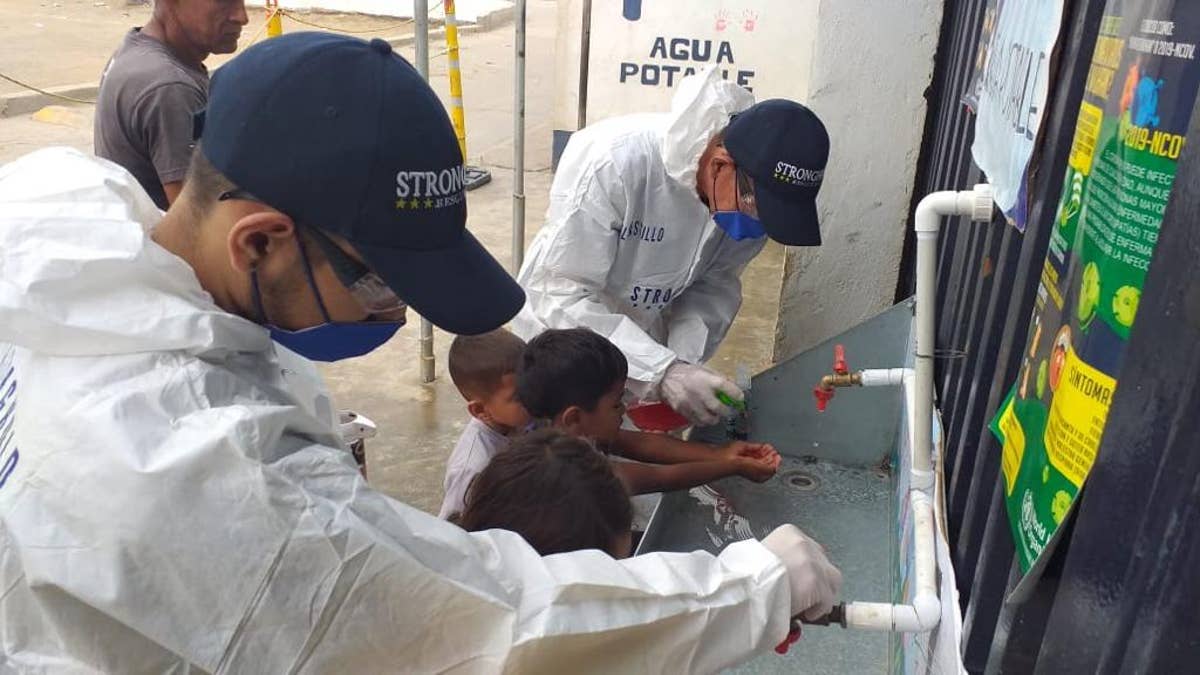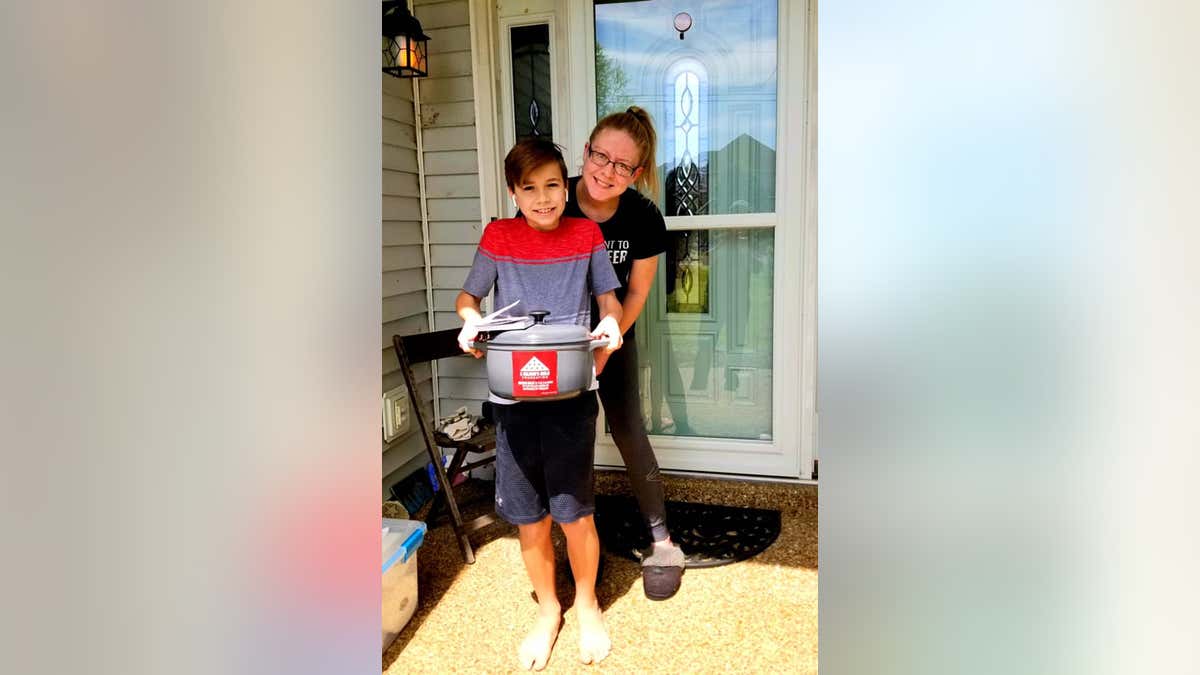Community kitchens help feed Americans amid coronavirus crisis
The World Central Kitchen CEO, Nate Mook, tells ‘America’s News HQ’ his company is partnering with the Washington Nationals to feed those in need amid the coronavirus pandemic.
Get all the latest news on coronavirus and more delivered daily to your inbox. Sign up here.
The coronavirus pandemic has decimated lives and livelihoods across the planet, and the staggering cost of the outbreak has depleted coffers meant to help those in need. The fund shortfall means charities working to help the most vulnerable – veterans, abuse survivors, the disabled and homeless – will no longer be receiving the money necessary to support their lifesaving work.
The global assault of the pathogen – officially called COVID-19 – has taken a drastic human and economic toll, battering nonprofit groups – large and small – that provide vital services, crucial research, and aid to causes not backed by the public or private sectors.
"Charities that were struggling to stay alive might have to close their doors unless they can get donors to up their gifts during this time," Jean Shafiroff, author of the book "Successful Philanthropy: How to Make a Life By What You Give," who serves on the board of seven charities, including the Southampton Association Hospital and NYC Mission, and is the ambassador for the Southampton Animal Shelter, told Fox News. "When people are not earning money, they are less apt to give away money. When funding decreases or dries up, programs have to be canceled, salaries might have to be reduced and staff might have to be cut."
Shafiroff estimates that billions once dedicated to U.S. charities have already been lost to the novel contagion.
WOMEN AND CHILDREN AT HIGHER RISK OF VIOLENCE AND SEXUAL ABUSE DURING CORONAVIRUS LOCKDOWN
Scores of charities across the country are sounding the alarm that they could go under if they cannot find alternative funding. Scores of nonprofits large and small have had to temporarily shut shop, cancel essential fundraising events, and have watched helplessly as funds have dried up from both individual and corporate donors, all of which are also battling to stay afloat.
"Our program was impacted by the COVID-19 on multi-levels," stressed Susan Baaj, founder of the Burnt Children Relief Foundation (BCRF), whose mission is to heal the wounds of war for children who have been burned by providing life-changing surgical care. "All the surgeries for current cases in the U.S. got postponed until further notice, which means a longer time of treatment and more expense on the program. Unfortunately, there is nothing much we can do as a nonprofit to change the situation, except try to continue helping on the humanitarian aspect in a different way."

The Burnt Children Relief Foundation (BCRF) purports to healing the wounds of war for burnt children by providing life-changing surgical care with the support of Shriners Hospital. (BCRF)
For example, Baaj noted, the mother of one of the severely burned girls has been busily sewing surgical masks, and all of the masks are donated to local hospitals.
In the United States, the charity sector makes up for some 10 percent of the workforce – making it the third-largest industry behind retail and manufacturing, according to a 2019 report by the Center for Civil Society Studies at Johns Hopkins University. And the longer the pandemic-induced lockdown transpires, the more jobs and livelihoods will be lost.
But even as the economy starts to open again, as illustrated in the plan laid out by the Trump administration's task force last week, there is deep concern that the contraction will last a long time, and many in need will suffer for years to come.
CLICK HERE FOR COMPLETE CORONAVIRUS COVERAGE
For many nonprofits, deficiencies of even just a few percentages from regular revenue can equate to calamitous business prospects.
Sterrin Bird, the chief advancement officer at Children's Health Council, the San Francisco Bay Area's oldest and largest children's mental health agency, told Fox News that through the federal government's CARES ACT, a number of nonprofits are entitled to at least some relief during these times. But it remains to be seen if the government (federal and state) will adjust rules and regulations on grantmaking as a result of this crisis.
"Many nonprofit organizations have fewer than three months of cash in reserves, so yes, many will be forced to shutter if this continues for an extended period of time," said Bird. The Children's Health Council also operates an independent therapeutic day school for kids with learning differences and two non-public schools for kids with emotional and social challenges.
Michael Bellavia, CEO of the social impact firm HelpGood, pointed out that many of the small nonprofits that either just started up recently or with limited capacity have to prematurely close or go dormant.
"The ones that will be able to weather this storm are the ones that already had robust digital engagement channels, multiple sources of revenue, and robust communities of support," he said. "The actual impact of the crisis on fundraising has yet to be fully realized. What we are seeing is a significant shift from traditional events, galas and other in-person means of fundraising to digital channels."
Some charities have endeavored to adapt to the "new normal" by re-purposing into "virtual" events – from zoom-centric guest talks and dance parties to dinners and debates. And that is likely to continue even as the economy re-opens.
"One of the trends we expect is an acceleration in the online fundraising events," said Eric Gazin, founder of the Auction Cause Online Auction Management Agency. "We've already seen an influx of calls from nonprofits who realize they have to cancel their in-person events with silent or live auctions and now are looking to us to help them put it online."

James Campbell runs a charity marathon to raise funds for the NHS, in his garden, while the country is in lockdown to control the spread of coronavirus, in Cheltenham, England, April 1, 2020. The former international athlete is spending his birthday running - in his seven-meter-long back garden - and will take over 7,000 shuttles back and forth to finish the 26.2-mile marathon. (Jacob King/PA via AP)
Meanwhile, others have lamented the sector's struggle to make drastic model changes in the endeavor to keep up with the changing times. In swaths of the Midwest, farmers are being forced to dispose of thousands of gallons of fresh milk and produce into manure pits as it can no longer be sold, crops are being destroyed, and flower industries have withered as a result of schools, restaurants, and hotels all being forced to close across the country.
The irony is that while countless individuals have been rendered jobless since the pandemic hit, exacerbating poverty and hunger, some farmers have purported to donate perishable goods to desperate food banks. But the high costs – coupled with limited refrigeration and transportation challenges – have rendered the effort fruitless.
HOW COMPLICIT IS THE WHO IN CHINA'S CORONAVIRUS COVER-UP?
In other mild silver-linings, charitable animal adoption shelters have – for the first time – celebrated a surge and emptying of cages as thousands of families under shelter-in-place orders have looked to add furry friends to their lives.
And some nonprofits even say that their giving models have stood the test of time, including through this pandemic.
"Coronavirus has shown that the vast majority of charities are nothing more than a house of cards, ready to collapse at any second. To shore against this in the future, charities should start to structure their foundations in the same manner as successful for-profit businesses," said Ephraim Mattos, a former U.S. Navy SEAL and now executive director of Stronghold Rescue & Relief, which helps Christian communities and those in dire circumstances inside Venezuela. "Since the outbreak of coronavirus, and the resulting economic slump, Stronghold Rescue & Relief has not only continued functioning at 100 percent, but we have also continued to grow."
From his purview, it is because they follow sound financial principles and focus not just on charity, but "charity with dignity."
"Charities with expensive office spaces and massive staffs should begin to think twice about the who and what they really need to accomplish their missions," Mattos contended. "Charities should also focus on building strong programs within the communities they help, and hire their personnel from within those communities, and build support from a large base of small donors instead of soliciting massive donations from a handful of benefactors. It is better to diversify and focus on building a large base of benefactors who each pledge small amounts every month."

Since the outbreak of coronavirus and the resulting economic slump, Stronghold Rescue & Relief has not only continued functioning at 100 percent, and says they have also continued to grow with a focus not just on charity, but “charity with dignity.” (Stronghold Rescue & Relief)
It remains to be seen just how much damage will stem from the coronavirus fallout, and how many charities will deteriorate as a secondary ripple effect. Moreover, a lack of confidence in public health measures and social distancing guidelines could also lead to a sharp shuttering of large-scale events like marathons, concerts and galas – all once fundraising lifelines.
CLICK HERE FOR THE FOX NEWS APP
Daryl Mackin, founder and executive director of A Soldier's Child Foundation, which celebrates the lives of boys and girls who have lost a military parent, noted that they usually shop with communities and corporations all over the country – specifically to the child's birthday gift wish list – but because of the coronavirus, they cannot meet with the large groups to shop anymore.

A Soldier's Child Foundation celebrates the lives of boys and girls who have lost a military parent (A Soldier's Child Foundation)
"We are now only able to buy gift cards online and send them without all of the normal pomp and circumstances," he added. "It's been difficult, but we will continue to find a way to celebrate these special American children's lives."


